Aileen MoynaghBBC News NI health reporter

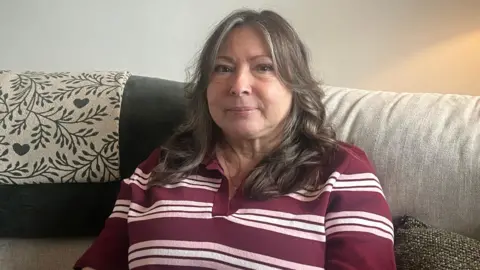 BBC
BBC
Mrs Cairns was diagnosed with Non-Arteritic Anterior Ischemic Optic Neuropathy (NAION) and Pseudo Foster-Kennedy syndrome
A woman who has been left with partial sight after she delayed seeking medical help said she wishes she had gone to an optician when she first had symptoms as her vision could have been saved.
Gail Cairns, from Belfast, started experiencing sight loss, headaches, and eye pain in July 2025, but waited four days before getting her eyes checked.
After being scanned at an opticians through a free NHS scheme she was immediately referred to hospital for treatment.
She had a serious eye condition that had left permanent damage.

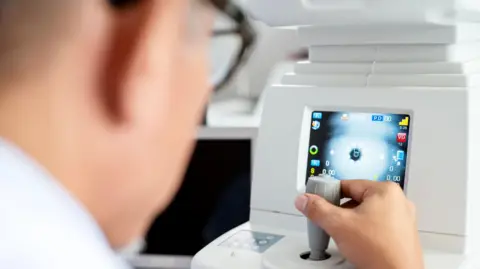 Getty Images
Getty Images
Detailed scans by the optician showed damage to her optic nerve because of swelling in her brain
Mrs Cairns was diagnosed with Non-Arteritic Anterior Ischemic Optic Neuropathy (NA-AION) and Pseudo Foster-Kennedy syndrome.
Detailed scans by the optician showed damage to her optic nerve because of swelling in her brain.
She was treated in hospital with steroids to reduce the swelling, but said "unfortunately the damage was done".
It has been "life changing" and she can no longer drive.
"If I had known about this condition and how quickly things can change, I would have gone on the Monday.
"The likelihood is that I would still be able to drive, and do all the normal things that I was doing," she said.
The 60-year-old said day-to-day things like cooking, going up and down stairs, reading to her grandchildren and putting on make-up are now difficult.
But she said the "hardest part was in the hospital whenever my three-year-old granddaughter was sitting on the bed, and I couldn't make out any of her features".
"I just took a lump in my throat, and it was like somebody punched me in the stomach.
"That was the first time I teared up over it," she said.
Mrs Cairns had annual eye tests because of a family history of glaucoma but wants to encourage anyone with sudden changes in their eyes to act quickly.
"Even the slightest change - don't put it off - get it seen to by an optician immediately."
She is thankful that she has not lost her sight completely.
Much like a GP, an optometrist is a primary care provider who is specialised in detecting and correcting conditions that affect vision and eye health.
An optometrist is trained to recognise abnormalities in eyes, and many provide enhanced services, including same day NIPEARS appointments for urgent eye care issues, like how Mrs Cairns was seen.
It is a service for patients who have developed a sudden eye problem within the previous 14 days, such as:
- Red eye(s)
- Pain and/or discomfort in the eyes, or around the eye area
- Sudden reduction in vision in one or both eyes
- Recent onset or sudden increase of flashes and/or floaters in one or both eyes
- Something in your eye that you cannot remove yourself

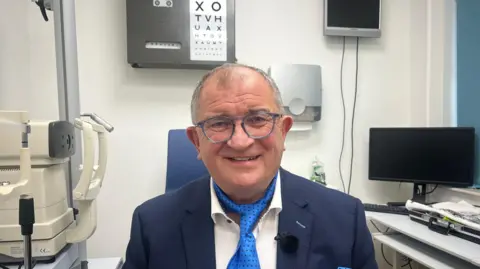
Sam Baird stresses the importance of early intervention
The service has been running since 2018, with more than 90% of practices providing the service, including Sam Baird's in Dundonald where Mrs Cairns went.
"Gail came in at 4 o'clock on a Friday afternoon with very painful eyes, not able to see clearly.
"We got drops to make her eyes more comfortable. We scanned her and assessed that she needed urgent attention at the hospital," he said.
He was able to provide her with the scans of the optic nerve, "which are diagnostic of the condition, which meant that when she got to the Ulster Hospital she was admitted immediately as opposed to waiting for hours".
This meant Mrs Cairns could start treatment immediately.
Mr Baird stressed the importance of getting your eyes checked as soon as symptoms appear as sight loss can happen very quickly.
While he said Mrs Cairn's case is rare, if she'd come in earlier in the week there might have been a different outcome.
"Those are the small cases where it can make a very dramatic difference.
"Opticians have the specialised equipment to do proper scans and a proper investigation of the eyes - something that the emergency room and GPs don't have."
Mr Baird said the NIPEARS system is reducing pressure on "two ends" of the health service.
"We're taking the pressure off the GPs by taking care of minor eye conditions and we're taking pressure off the ophthalmology hospital clinics because they're not filled with unnecessary referrals," he said.
According to the Royal National Institute of Blind people (RNIB), every day 250 people start to lose their sight in the UK, which is equivalent to one person every six minutes.
The charity says more than two million people are living with sight loss in the UK and half of them are blind and partially sighted and live with a long-term irreversible eye health condition.
The RNIB said it is predicted that by 2050 the number of people with sight loss in the UK will double to more than four million.

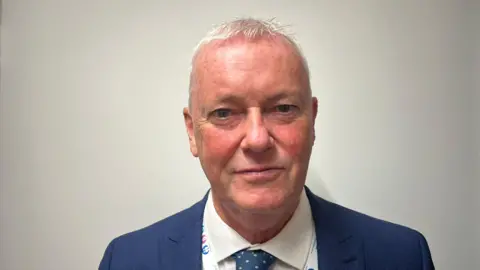
Raymond Curran says half of all sight loss is avoidable
In September 2025, the Department of Health (DoH) highlighted the "vital role of community optometry in improving access to care and shaping the future of eyecare in Northern Ireland".
Raymond Curran, the DoH's Head of Ophthalmic Services is encouraging people to look after their eyes as "50% of all sight loss is avoidable".
He said "primary care optometrists" should be the first port of call for eyes, as GPs are experiencing capacity issues.
ED eye departments are struggling to cope with increased demand.
The DoH said it is committed to making it easier for patients to access the care they need, and that community optometry shows how services delivered closer to home can detect problems early, reduce waiting lists, and ease pressure on hospitals.

 German (DE)
German (DE)  English (US)
English (US)  Spanish (ES)
Spanish (ES)  French (FR)
French (FR)  Hindi (IN)
Hindi (IN)  Italian (IT)
Italian (IT)  Russian (RU)
Russian (RU)  3 weeks ago
3 weeks ago

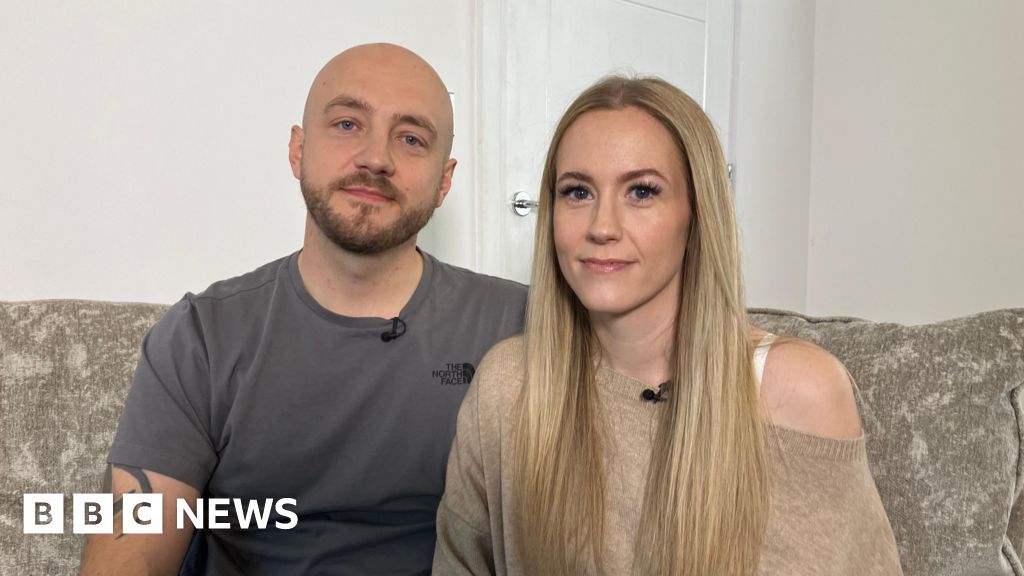
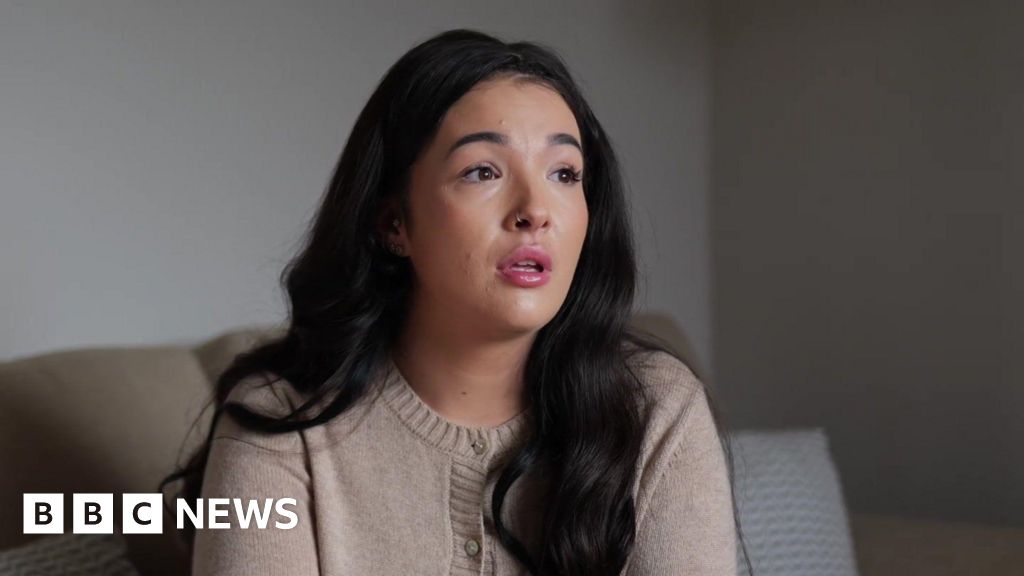
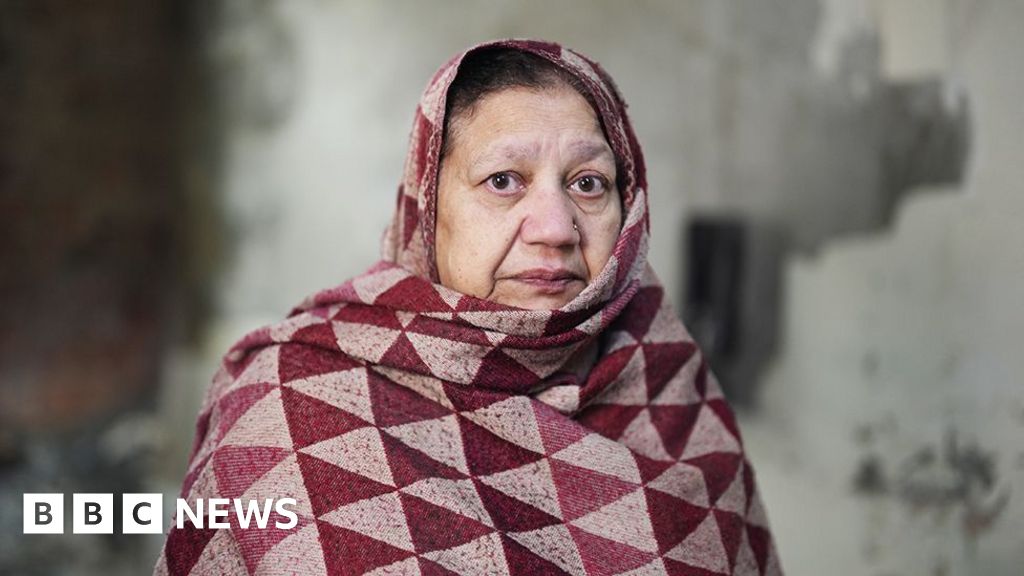
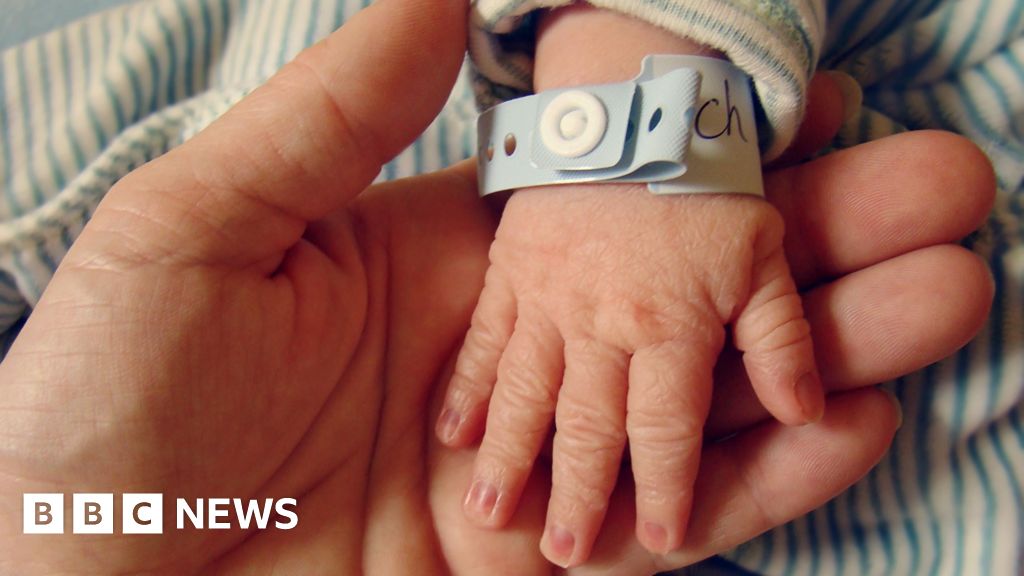
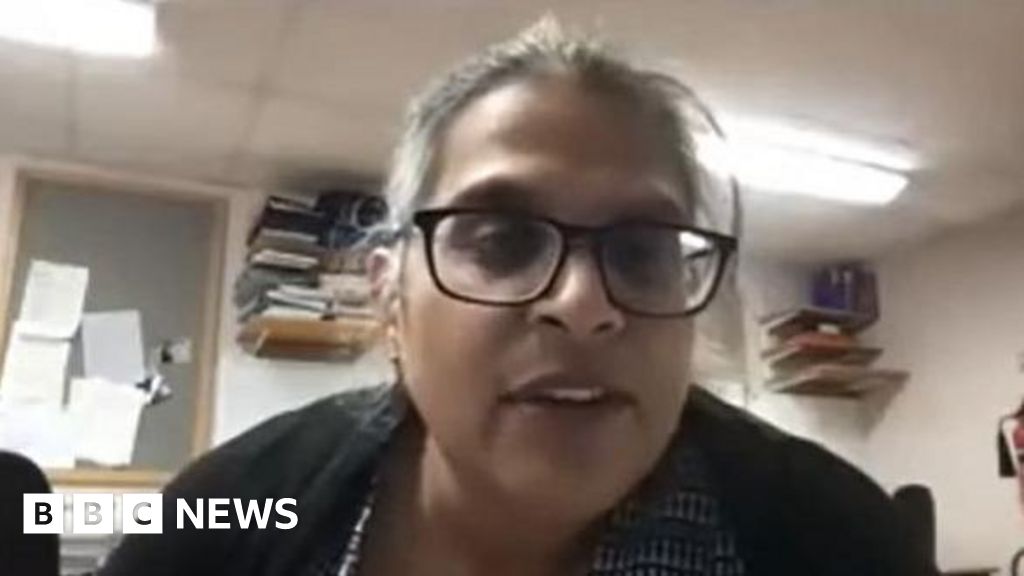


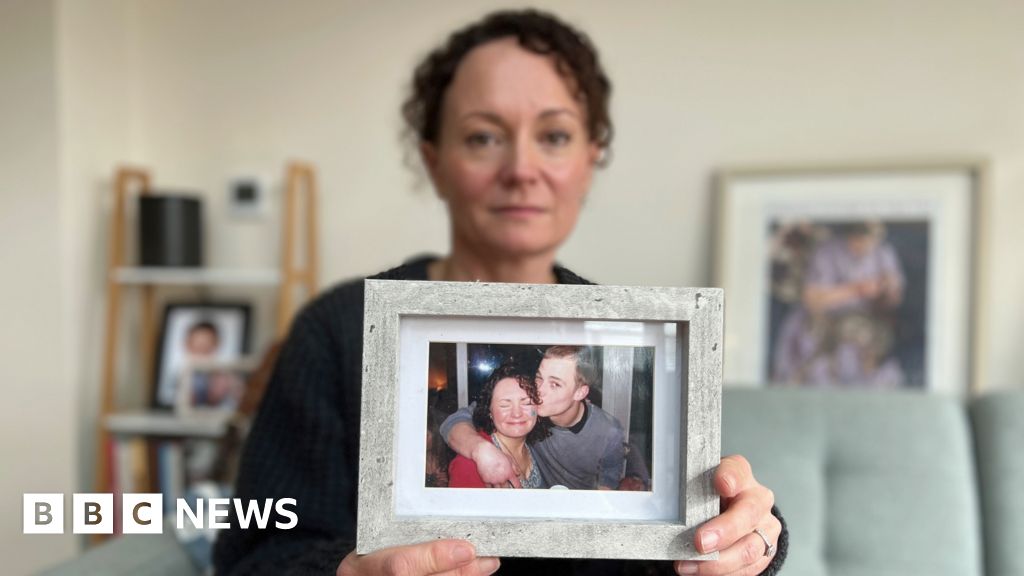

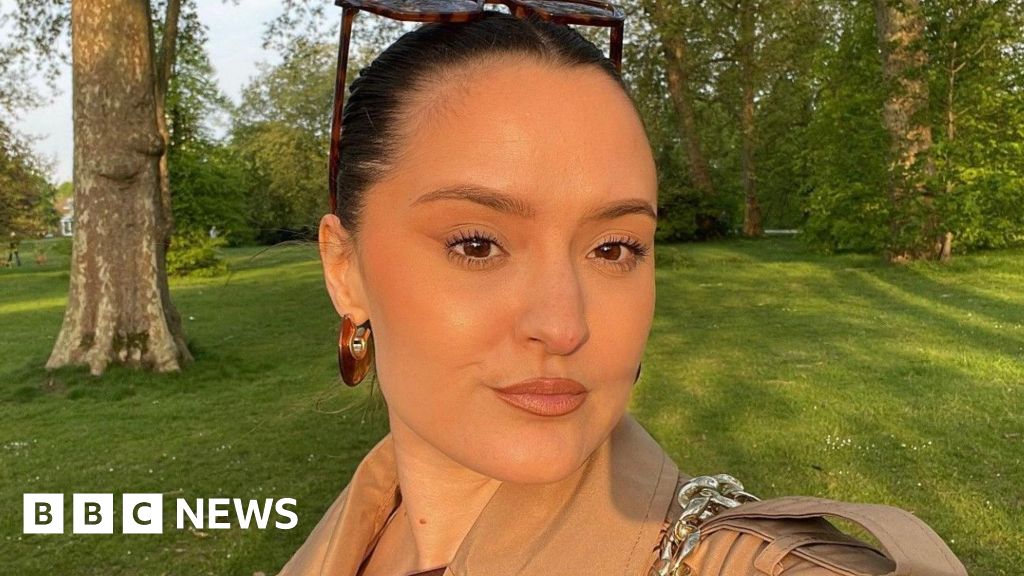
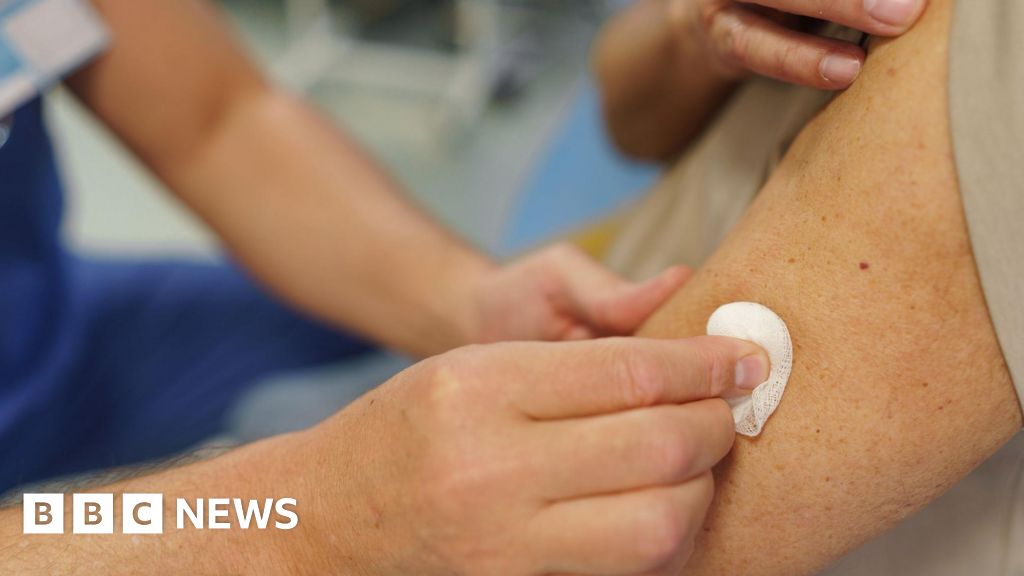












Comments